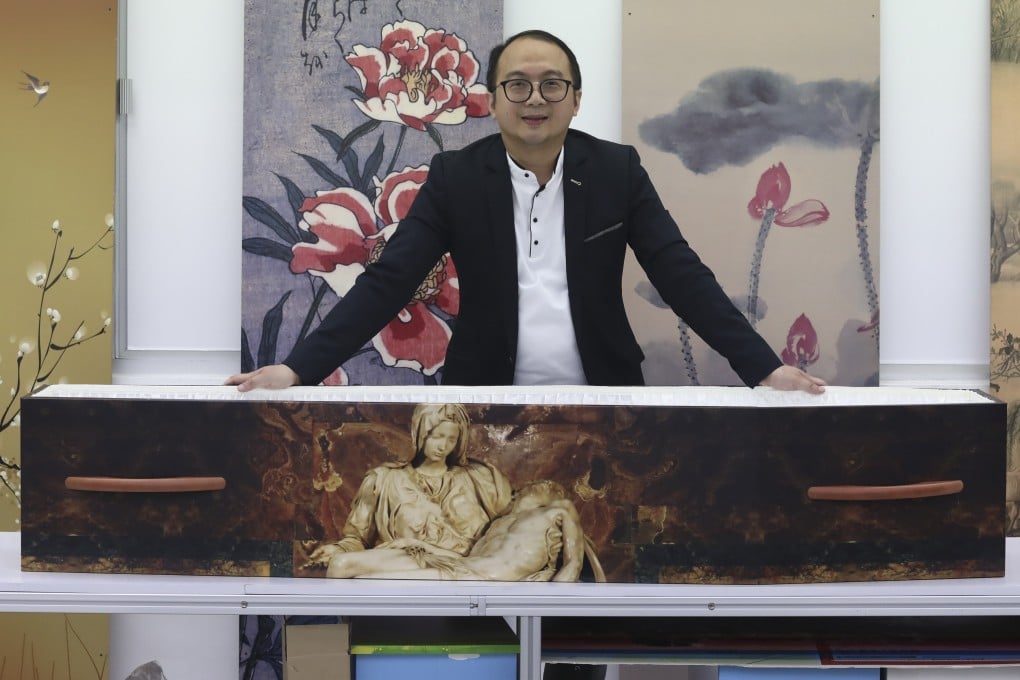Cardboard coffin maker eyes green funerals’ potential in East Asia, but meets resistance in its home market, Hong Kong
- LifeArt makes eco-friendly cardboard caskets and coffins in Hong Kong. When burned they emit 87 per cent less greenhouse gas than chipboard or fibreboard ones
- The city’s funeral industry is largely resistant to the green funeral trend, believing the coffins look cheap and that their use will earn them less profit

The robot arm zooms back and forth in the workshop of LifeArt in Hong Kong, shaping a sheet of thick, hard cardboard into a modern and environmentally kind cardboard coffin, or eco-coffin.
Wilson Tong, chief representative of LifeArt, the only manufacturer of eco-friendly cardboard caskets and coffins in Hong Kong, believes they are the way of the future. Tong has a vision of automation, precision, environmentalism and growing eco-coffin exports across Asia.
“We use board imported from Germany and special corrugated cardboard from the US, and we use Japanese technology to make it stronger,” Tong says at the company’s workshop in Aberdeen, on the south side of Hong Kong Island. “The advantage of those kinds of boards is they reduce the use of materials from trees. They save 80 per cent compared with chipboard or MDF [medium-density fibreboard, another wood product].”
According to LifeArt the special boards are made using wood fibres from “sustainable forestry operations, forestry or agricultural by-products, or recycled wood fibres”, and when burned they emit 87 per cent less greenhouse gas than chipboard or MDF.

As the world becomes increasingly concerned about air pollution and global warming, people have begun to consider the environmental cost of cremating traditional coffins, which often emit toxic fumes when burned. A US firm plans to begin offering “composting” funerals this year. Britain’s Prince Philip was reportedly buried in a wool coffin. Wicker and bamboo coffins have become increasingly popular.
Tong looks over at the cardboard coffin being automatically drilled by the robot arm. “This product is for any organisations that care about the air, about global warming,” he says.